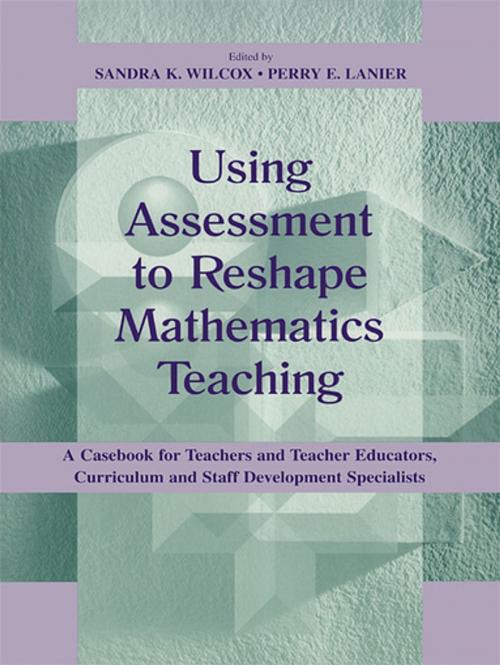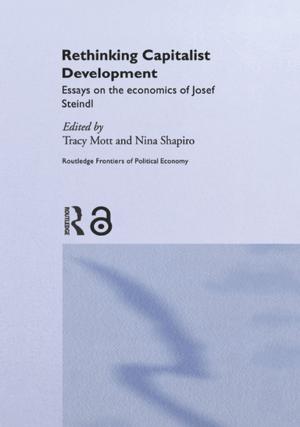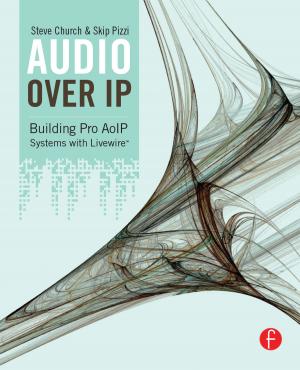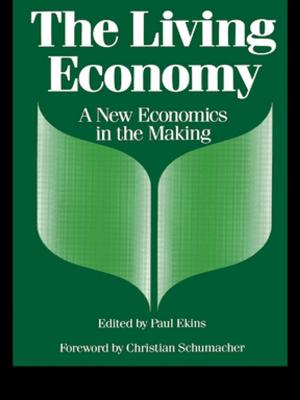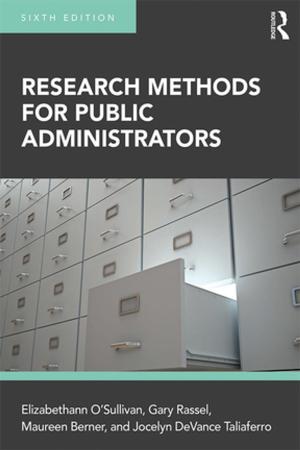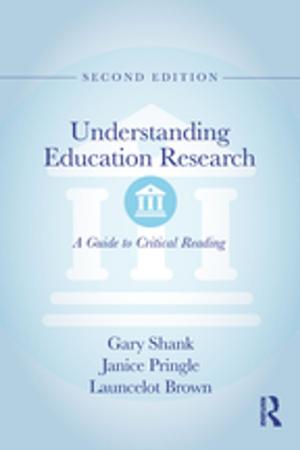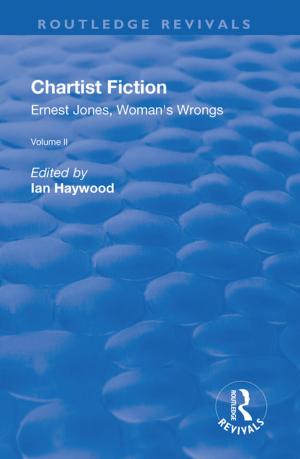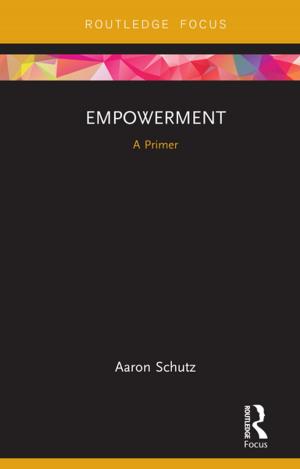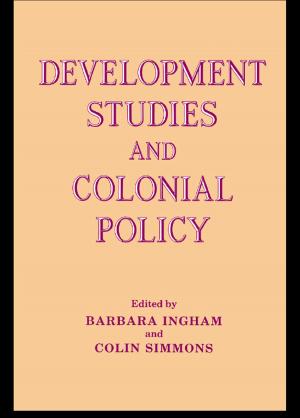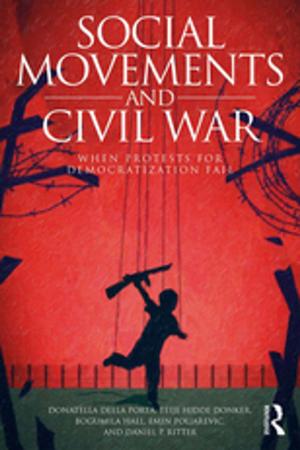Using Assessment To Reshape Mathematics Teaching
A Casebook for Teachers and Teacher Educators, Curriculum and Staff Development Specialists
Nonfiction, Reference & Language, Education & Teaching, Teaching, Teaching Methods| Author: | ISBN: | 9781135678388 | |
| Publisher: | Taylor and Francis | Publication: | April 1, 2000 |
| Imprint: | Routledge | Language: | English |
| Author: | |
| ISBN: | 9781135678388 |
| Publisher: | Taylor and Francis |
| Publication: | April 1, 2000 |
| Imprint: | Routledge |
| Language: | English |
This casebook is intended to support professionals who are working in a variety of contexts to use classroom-based assessment more effectively to support teacher learning and teaching change, and to enhance the opportunities for all students to develop mathematical power. It grows out of a collaboration of mathematics teachers and teacher educators, and mathematicians, to better understand the role of assessment as an ongoing activity to help teachers reshape their own teaching practices. At the heart of each case is using assessment to make sense of what students understand and what they are confused about, deciding what counts as evidence of that understanding, and using the analysis to consider what the teacher's next instructional moves might be.
All of the cases in this volume are built around actual episodes from mathematics classrooms. Intended as decision-making exercises, they present the raw data of classroom events in a straightforward way and are designed to stimulate analysis and reflection; provoke various and sometimes conflicting interpretations of an event; bring to the fore deeply held beliefs of beginning and experienced teachers so they can be reconsidered; and engage professionals in pedagogical problem solving in the context of complex classroom settings.
This volume reflects the growing interest in cases as a pedagogical tool in teacher professional development. The cases are organized to take up key themes of the NCTM Professional Teaching Standards in ways that will assist and support teachers, teacher educators, and curriculum and staff development specialists in learning to assess and in linking assessment with curriculum, teaching, and learning. Although each case contains many ideas for linking assessment with curriculum and instruction, the most powerful use of these materials resides in their design intended to foster conversations among groups of professional colleagues. The editors' field-testing of the cases--in initial teacher certification courses and in in-service workshops--has shown that they prompt engaging and demanding analysis through a variety of analytic lenses.
A videotape containing vignettes for four of the cases in the Casebook is available with this book. Transcriptions of the video vignettes are printed in the case materials in the book. Course instructors and professional development facilitators will need both the Casebook and the videotape and should order the Casebook/Video set. The video can also be ordered separately.
This casebook is intended to support professionals who are working in a variety of contexts to use classroom-based assessment more effectively to support teacher learning and teaching change, and to enhance the opportunities for all students to develop mathematical power. It grows out of a collaboration of mathematics teachers and teacher educators, and mathematicians, to better understand the role of assessment as an ongoing activity to help teachers reshape their own teaching practices. At the heart of each case is using assessment to make sense of what students understand and what they are confused about, deciding what counts as evidence of that understanding, and using the analysis to consider what the teacher's next instructional moves might be.
All of the cases in this volume are built around actual episodes from mathematics classrooms. Intended as decision-making exercises, they present the raw data of classroom events in a straightforward way and are designed to stimulate analysis and reflection; provoke various and sometimes conflicting interpretations of an event; bring to the fore deeply held beliefs of beginning and experienced teachers so they can be reconsidered; and engage professionals in pedagogical problem solving in the context of complex classroom settings.
This volume reflects the growing interest in cases as a pedagogical tool in teacher professional development. The cases are organized to take up key themes of the NCTM Professional Teaching Standards in ways that will assist and support teachers, teacher educators, and curriculum and staff development specialists in learning to assess and in linking assessment with curriculum, teaching, and learning. Although each case contains many ideas for linking assessment with curriculum and instruction, the most powerful use of these materials resides in their design intended to foster conversations among groups of professional colleagues. The editors' field-testing of the cases--in initial teacher certification courses and in in-service workshops--has shown that they prompt engaging and demanding analysis through a variety of analytic lenses.
A videotape containing vignettes for four of the cases in the Casebook is available with this book. Transcriptions of the video vignettes are printed in the case materials in the book. Course instructors and professional development facilitators will need both the Casebook and the videotape and should order the Casebook/Video set. The video can also be ordered separately.
